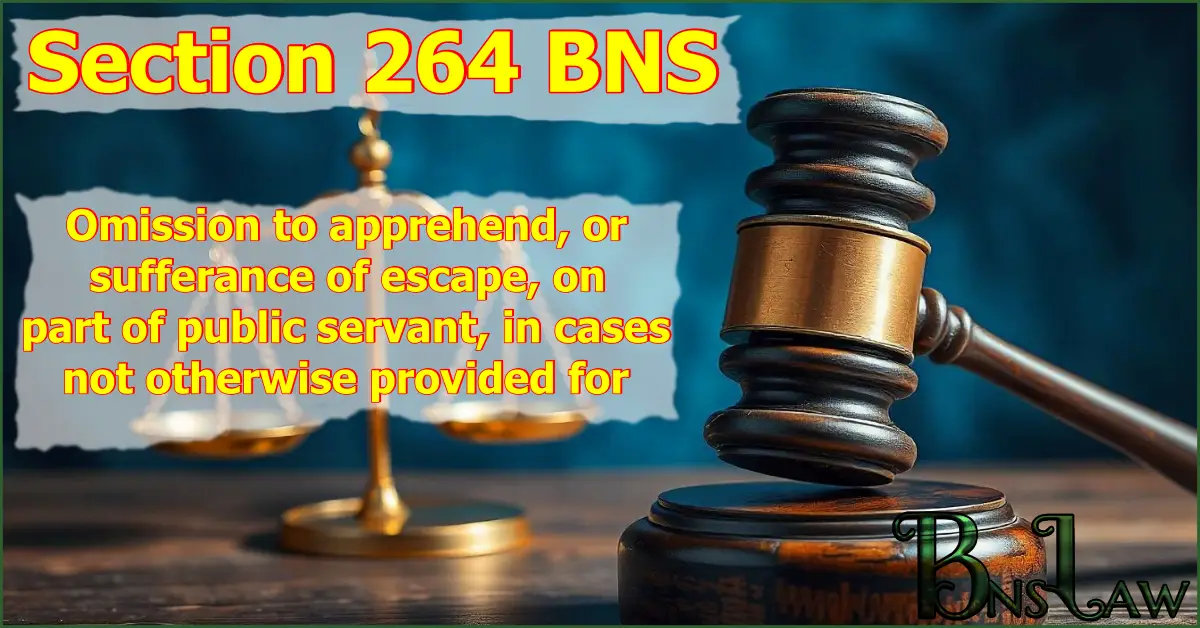Section 264 BNS | BNS 264
Whoever, being a public servant legally bound as such public servant to apprehend, or to keep in confinement, any person in any case not provided for in section 259, section 260 or section 261, or in any other law for the time being in force, omits to apprehend that person or suffers him to escape from confinement, shall be punished—
264(a) BNS
if he does so intentionally, with imprisonment of either description for a term which may extend to three years, or with fine, or with both; and
264(b) BNS
if he does so negligently, with simple imprisonment for a term which may extend to two years, or with fine, or with both.
READ OTHER SECTIONS OF CHAPTER XIV — OF FALSE EVIDENCE AND OFFENCES AGAINST PUBLIC JUSTICE
FAQs of BNS Section 264
-
264 BNS punishment and fine
Punishment and fine under Section 264 of the BNS—
264(a): Imprisonment for 3 years, or fine, or both.
264(b): Simple imprisonment for 2 years, or fine, or both. -
264 BNS cognizable or not
The offence under Section 264(a) and 264(b) of the BNS is non-cognizable.
-
264 BNS bailable or not
The offence under Section 264(a) and 264(b) of the BNS is bailable.
-
264 BNS trial court
Offence specified in Section 264(a) of the BNS is triable by the Magistrate of the first class, while the offence specified in Section 264(b) is triable by any Magistrate.
Important Points
- Cognizable Offences: These are offences where a police officer can arrest a person without a warrant.
- Non-Cognizable Offences: These are offences where a police officer cannot arrest a person without a warrant.
- Bailable Offences: These are offences where the accused can get bail from the police station itself. All bailable offences are listed in the First Schedule of the Bharatiya Nagarik Suraksha Sanhita (BNSS).
- Non-Bailable Offences: Offences in which bail is not granted directly from the police station but after hearing the case in the court, the judge decides when bail will be granted. All non-bailable offences are listed in the first schedule of the Bharatiya Nagarik Suraksha Sanhita (BNSS).
- In the above FAQ, “trial court” means the court that has jurisdiction to try the offence.
- In the above FAQ, the expression “Magistrate of the first class” and “Any Magistrate” does not include Executive Magistrates.
Read other Sections of the BNS
Reference Link: New Criminal Laws (BNS), Ministry of Home Affairs







